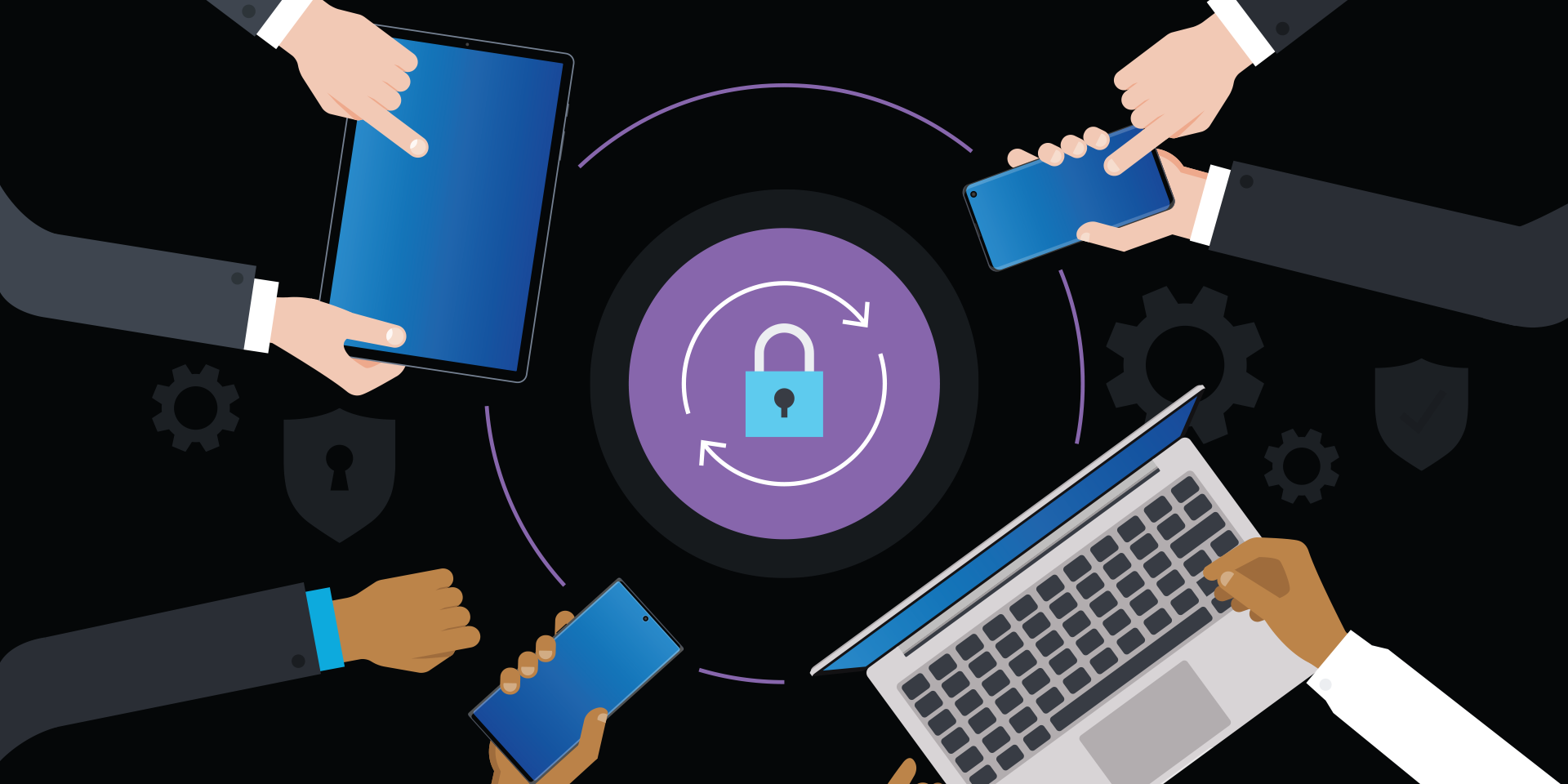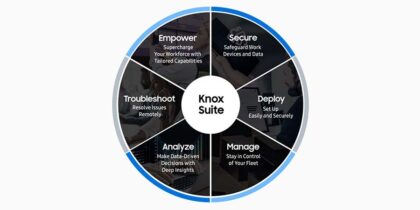Smartphones and mobile apps are increasingly critical to the operations of small and medium-sized businesses (SMBs) across every industry. With the increased importance of and reliance on mobile, however, come increased risks. SMBs should carefully consider their approach to mobile device management (MDM), or risk being the victim of a costly security breach.
What is MDM?
Sometimes part of an enterprise mobility management (EMM) platform, MDM is software that lets you control and enforce your company’s mobile usage policies on employee smartphones or tablets. It enhances security while minimizing device downtime and reining in support costs. In simple terms, all employees will install an MDM client application on their mobile devices. The IT administrator is then able to configure and adjust settings and policies for all enrolled devices via an MDM portal.
At first glance, MDM might seem too complex for your business, but it’s essential. If you use smartphones for anything more than voice calls, you may be putting your business at risk for data breaches and regulatory compliance issues. Fortunately, there are SMB-friendly, affordable options that can be easily implemented — and scaled — in your growing business.
What does MDM do?
To help you enforce policies on smartphones and tablets, MDM uses software agents on employee devices and an MDM server in the cloud or on-premises that sets the device policies. Initial policy profiles and updates are delivered over-the-air (OTA) and can be “forced” so that no action is required from the user. The MDM agent applies the new policies to the smartphone or tablet so that, for example, biometric authentication is required or that the device can’t download certain social media apps.
For smaller businesses, there’s a wide choice of MDMs that have enough features to help you secure mobile devices used by employees, whether they’re BYOD or company-issued. You can track devices, enforce strong password policies, distribute applications and updates (like a new version of the mobile CRM app, similar to what app stores do for consumer apps), and remotely wipe the devices if they’re lost or stolen.
Is on-premises or cloud-based MDM better for small business?
On-premises and cloud-based versions each have their advantages and disadvantages. On-premises products require companies to install the MDM server product in a data center and need one or more IT professionals to maintain it, which may be beyond the scope of a small business. However, companies have complete control over on-premises installations and they’re ideal for companies that must have Active Directory (AD) integration.
Meanwhile, cloud MDM products don’t require a server and are automatically updated by the vendor. It’s often recommended that small business IT managers start with a cloud-based solution because of the smaller capital investment and consistent capabilities. Additionally, cloud security has come a long way in the past few years. Data centers in the cloud are often just as (if not more) secure than their on-premises counterparts.
MDM is priced per user
With balancing the books usually top of mind, small businesses want to weigh these benefits against the cost. A study by Oxford Economics finds the typical monthly cost of MDM between $3.25 and $9 per device. Of course, the cost rises as you add more features, such as virtual private network (VPN), containerization or data separation. Some MDMs, including Samsung’s affordable cloud-based Knox Manage solution, offer free trials.
Mobile device management for beginners
Get started with MDM so your organization can spend less and do more — securely and efficiently. Download Now
What does bring hefty costs is a data breach. According to the Ponemon Institute, the average cost per record is $148. For healthcare organizations, that amount can be as much as $408. If your employees are using their smartphones for business purposes, they likely have protected information stored in their email inbox or mobile apps. What happens if their device is lost, stolen or hacked through a rogue app they downloaded?
Small businesses often don’t survive a data breach. MDM protects mobile devices used for business purposes, whether they’re company or employee-owned, and helps protect the organization from risk. As your small business becomes more mobile, an MDM becomes indispensable.
As well as offering the Knox Manage EMM as an affordable standalone offering, Samsung also offers the Knox Suite bundle, combining device security, deployment and management tools. With one license and a single sign-on, organizations can use Knox Platform for Enterprise, Knox Mobile Enrollment, Knox Manage and Knox E-FOTA for end-to-end device management.
Get started on your MDM journey with our free interactive guide. Then sign up for your free 90-day trial of Knox Manage, Samsung’s quick, easy and affordable MDM solution.







